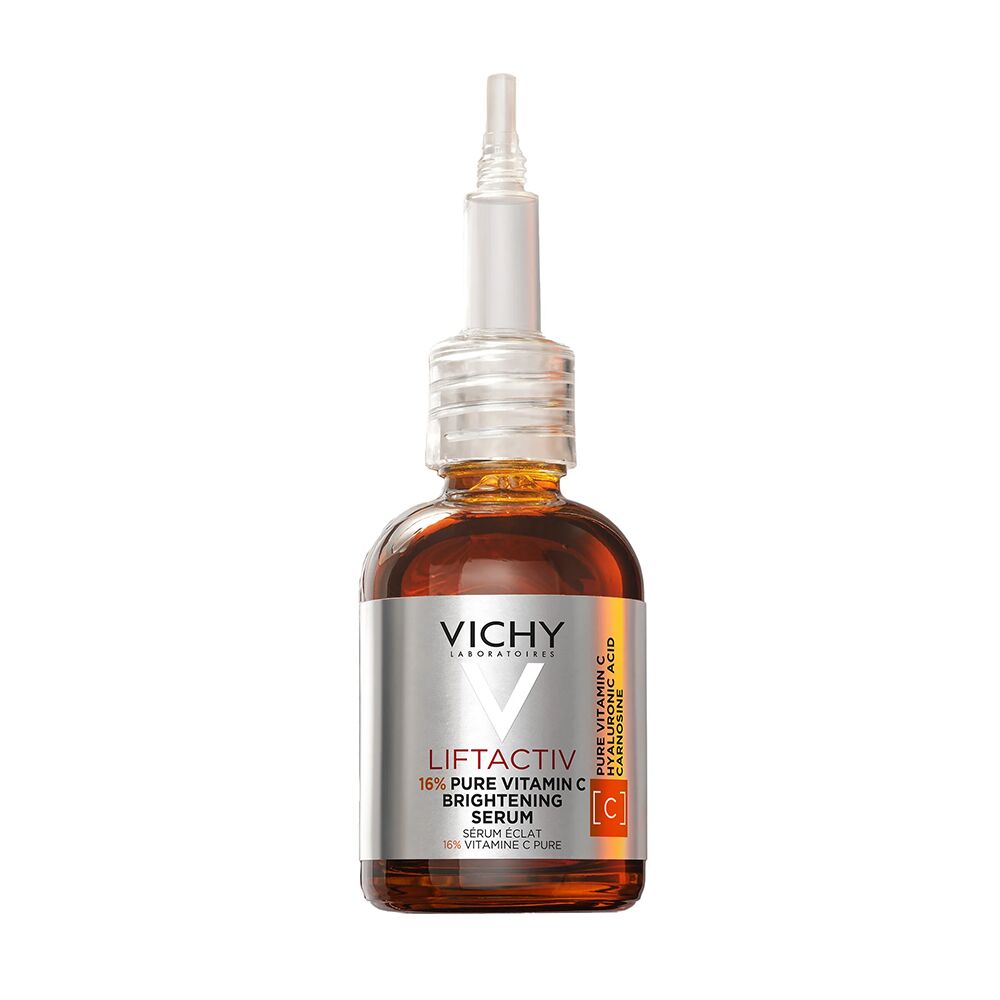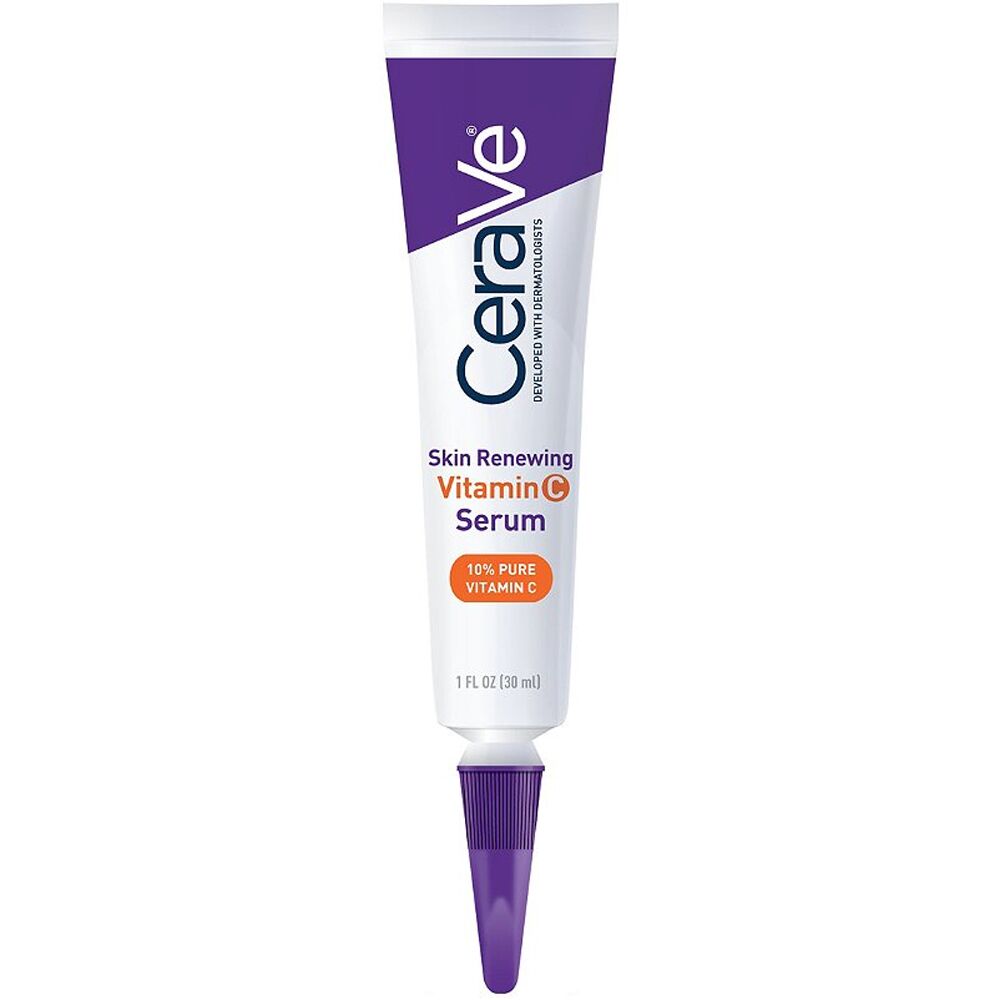It’s not an exaggeration to call vitamin C the Swiss Army Knife of skin care. The ingredient has a plethora of perks, both instantly and over time. It does everything from brightening to turning back the clock, making it a potent anti-ager.
“Vitamin C has three main benefits,” according to Ron Robinson, cosmetic chemist and founder of BeautyStat. “It’s a powerful antioxidant, thus able to protect your skin from free radical damage. It helps to stimulate collagen, reducing fine lines and wrinkles and firming skin. It helps to inhibit the over-production of melanin, helping to even out skin tone and fade hyperpigmentation.”
Read on for everything you need to know about the triple threat.
What are the benefits of vitamin C in skin care?
Vitamin C is an antioxidant that helps to protect the skin against free radical damage, explains New York dermatologist Marisa Garshick, MD. “It also helps to brighten the skin and improve discoloration to even skin tone and supports collagen production, helping to improve the appearance of fine lines and wrinkles,” she says. “By helping to protect against free radical damage which can occur as a result of UV exposure, vitamin C works well in a morning routine when paired with sunscreen to provide ultimate protection.”
Where in your skin-care routine should you use vitamin C?
In general, it is best to use vitamin C once daily in the morning, applied to clean skin. Robinson advises following it with moisturizer and sunscreen during the day. It can also be used at night on clean skin.
But it also depends on the type of skin-care product. “If using a serum, it is best to use after cleansing and prior to moisturizing and sunscreen,” Dr. Garshick says. “It is helpful to use vitamin C in conjunction with sunscreen for best protection against UV damage.”
What ingredients can you and can you not use with vitamin C?
“If your skin is sensitive, it is best to not combine vitamin C with other acids or retinoids,” Robinson says. “But vitamin C is very compatible with other hydrating ingredients like hyaluronic acid, glycerin, and squalane.”
In fact, when vitamin C is partnered with some other antioxidants, such as vitamin E or ferulic acid, it can have an enhanced benefit, helping to improve both stability and efficacy, according to Dr. Garshick. “Because vitamin C has a tendency to be unstable, certain ingredients, such as retinoids or exfoliating acids, can lower the efficacy and cause the vitamin C to break down or lead to irritation,” she says. “Unless the product is specifically formulated in combination with other ingredients, it is generally best to avoid mixing vitamin C with other ingredients given the risk of reducing efficacy and stability.”
What should you look for when purchasing a vitamin C product?
There are a few factors to keep in mind. “It is important to consider the product type, whether it is a serum, essence, moisturizer or other, the type of vitamin C, the concentration and whether it is combined with other ingredients to ensure stability and efficacy,” Dr. Garshick says.
For maximum results, Robinson recommends looking for vitamin C serums that contain between 10 to 20 perfcent of pure vitamin C (L-Ascorbic Acid). If you have sensitive skin, you can start off at a lower concentration to avoid irritation and increase as needed.
Those with sensitive skin may want to look for other forms of vitamin C, such as magnesium ascorbyl phosphate, which is a water-soluble vitamin C and can be less irritating. “pH can also be important when it comes to selecting a vitamin C in someone with sensitive skin, as those with sensitive skin may prefer a vitamin C with a pH that more closely mimics the skin’s natural pH,” Dr. Garshick says. “Often vitamin C products are formulated to have a low pH to help with stability, but the lower pH can be irritating, so it may be important to consider this if you have sensitive skin.”
Additionally, some vitamin C formulations contain moisturizing ingredients that can also be an option for those with dry or sensitive skin, while others incorporate other ingredients that can help to address oil. “In general, vitamin C products often contain other antioxidants which may help to stabilize and boost results, soothing ingredients like niacinamide and hydrating and moisturizing ingredients such as hyaluronic acid,” Dr. Garshick says.
As cosmetic chemist Kelly Dobos explains, “Vitamin C is readily water-soluble, and while many cosmetic creams and lotions feature water-based vitamin C, in these types of formulations it is unstable with respect to heat, light and exposure to oxygen, and at pH levels near or above 7. Trace sources of metals like copper and iron are also known to be detrimental. Although less efficacious, derivatives of vitamin C like sodium ascorbyl phosphate and sodium ascorbyl palmitate have greater stability,” she notes.
Opaque containers and airless pump packaging is ideal to help protect the ingredient. Dobos adds that advanced carrier systems like liposomes can also be used to deliver sustained release of vitamin C over time. If you’re looking for a dynamic duo combining vitamin C with vitamins A and E have a been shown to enhance the ingredient’s efficacy, she says.
How do you know if a product contains vitamin C?
Simply check out the label! But remember that there are several types of vitamin C, so look for L-ascorbic acid, sodium ascorbic phosphate, tetrahexyldecyl ascorbate, magnesium ascorbic phosphate and ethyl ascorbic acid.
“Most manufacturers disclose the type of vitamin C they use,” Robinson says. “It could be the pure form of vitamin C (L-Ascorbic Acid) or a vitamin C derivative, such as sodium ascorbyl phosphate or THD ascorbate.”








